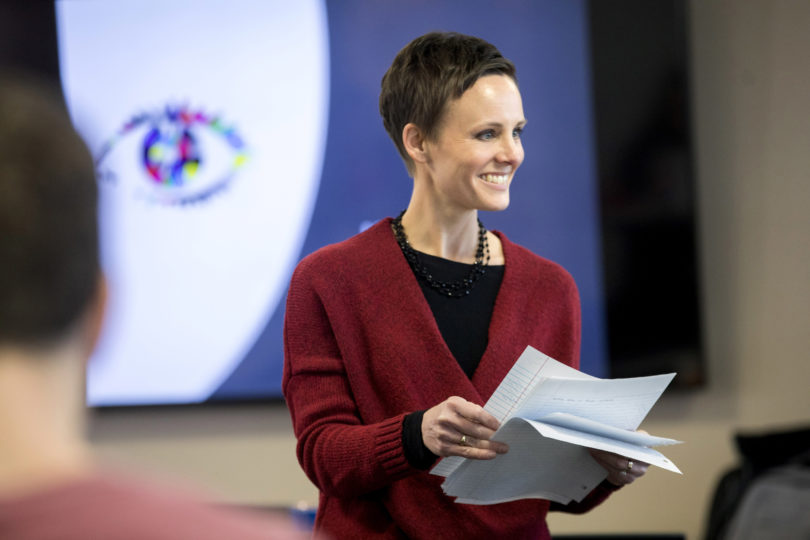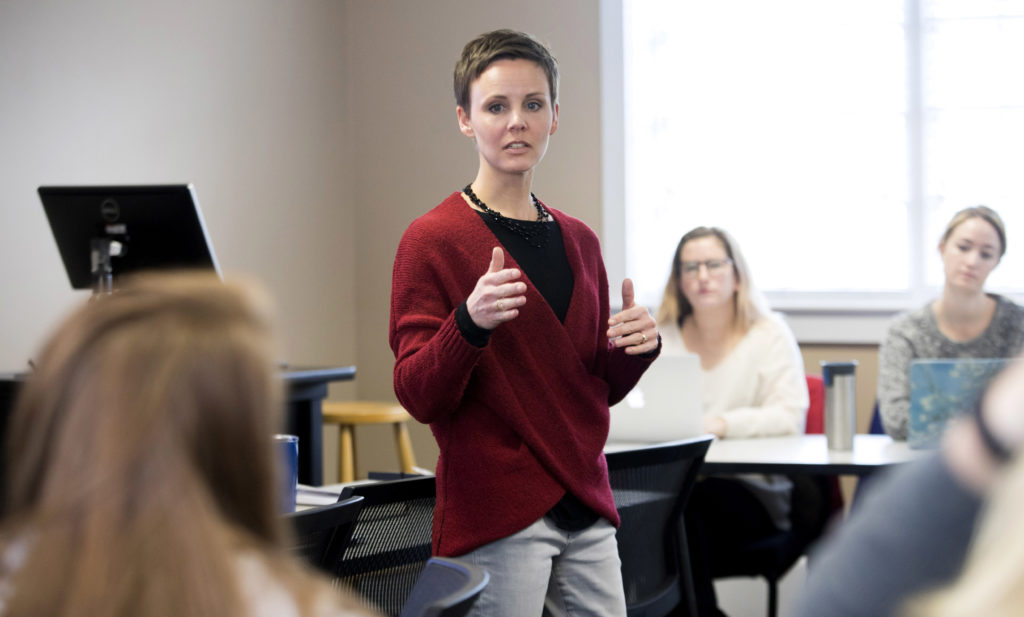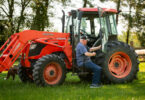(Originally published Feb. 24, 2019)
Abigail Borron, an assistant professor in the College of Agricultural and Environmental Sciences, helps students become effective and engaged communicators through hands-on learning experiences such as service-learning and study abroad.
Where did you earn degrees and what are your current responsibilities at UGA?
My undergraduate degree is from Indiana University–Purdue University of Fort Wayne in English and professional writing. My Master of Science and Ph.D. are in agricultural communication (emphases in risk communication and culture-centered communication, respectively) from Purdue University.
My responsibilities as an assistant professor here at UGA are teaching a variety of courses in agricultural communication and serving as a specialist and researcher for UGA Extension.
When did you come to UGA and what brought you here?
I came to UGA in January 2015 after being recruited for an assistant professor position in agricultural communication for the department of agricultural leadership, education and communication.
What are your favorite courses and why?
One of my favorite courses to teach is “Introduction to Agricultural Communication” because it is one of the first courses that all students new to our program, as well as a variety of students from other majors seeking an elective, take. I love the opportunity to open their eyes up to not only the career opportunities in AgComm, but also the value of effectively translating and communicating science regardless of a student’s intended career path.
But my absolute favorite course to teach is “Culture-Centered Communication in Agriculture.” This service-learning class takes students out into the community to work with local food pantries. As our students prepare to become communication professionals in a variety of science-based areas, one of the most valuable skills they need is to understand the significance of culture-centered communication and engagement in diverse communities. I thoroughly enjoy walking them through this experience, often seeing some of them discover a career path they didn’t realize could even exist for them as an AgComm major.
What are some highlights of your career at UGA?
Now that I’ve been here for four years, I’ve been able to see students go from the beginning to the end of our program, having huge successes along the way. It’s always an amazing experience to be able to celebrate with them at each milestone, especially when they have demonstrated such amazing personal growth over the years.
Agricultural communication is a smaller program. At this point, there is only one other faculty member—Jessica Holt—and me. We started our positions on the same day and since then have had a blast together as we have worked tirelessly to get the program moving in the direction that is most beneficial for the students. I’m so very thankful for such a great colleague.
How do you describe the scope and impact of your research or scholarship to people outside of your field?
My research focuses on culture-centered communication with emphases on marginalized audiences, university engagement and food insecurity. The emphasis is a focus on the perspectives of marginalized people in solution-oriented research, bringing to the forefront the narratives and lived experiences of these audiences, addressing complex social structures and iniquities. This enables not only an identification of the challenges in researching and engaging a target audience, but also a careful examination of the community- and/or university-based programs designed to serve them.
How does your research or scholarship inspire your teaching, and vice versa?
While I completed my graduate degrees, I worked full time as a communication specialist for Purdue Extension. During that time, I became increasingly aware that, as a practitioner, I didn’t fully understand the needs or perceptions of targeted audiences, nor the broader scope of effective message development strategies. However, my developing research helped me overcome that limitation. As I transitioned over into a faculty position, I became committed to ensuring my students never fully felt that same disconnect. Today, I continually integrate modified research methods and theories into practitioner-based lessons with my students, challenging them in critical analyses of media and message development, as well as practices of authentic audience engagement.
What do you hope students gain from their classroom experience with you?
It is my hope that upon graduation, my students have the ability to function as a civically responsible, engaged professional and voice in the development, translation and dissemination of policy, research-based practices and controversial issues related to agriculture, food and the environment.
Describe your ideal student.
My ideal student isn’t necessarily the student who can rock straight A’s throughout their college career. Rather, I pull for the students who are inquisitive and committed to learning, and who show an enthusiasm and drive for a prospective career path (or paths, as I don’t expect them to know from day one what they plan to do).
Favorite place to be/thing to do on campus is…
Whether I’m walking or driving, I love the entire winding and hilly route of Cedar Street through campus. It just reminds me how beautiful UGA is.
Beyond the UGA campus, I like to…
Spend time with my husband and daughter (which often includes attending UGA soccer or volleyball games) and just generally being outside.
Community/civic involvement includes…
I have a great respect for the work of the Sparrow’s Nest in Athens and enjoy helping out there when I can.
Favorite book/movie (and why)?
Two books: “A.D. 30” and “A.D. 33.” I love historical fiction.
The one UGA experience I will always remember will be…
In May 2016 I took a group of AgComm students on a service-learning study abroad program to Romania. Of course, trips like that always provide an opportunity to get to know students so much better, which I always greatly appreciate. But this group was fantastic. They worked hard with our in-country partners, gaining positive attention from their produced work with a rural community (including being interviewed by a Romanian news channel). We had such a great time, making fabulous memories and lasting relationships. I was so proud of them!







